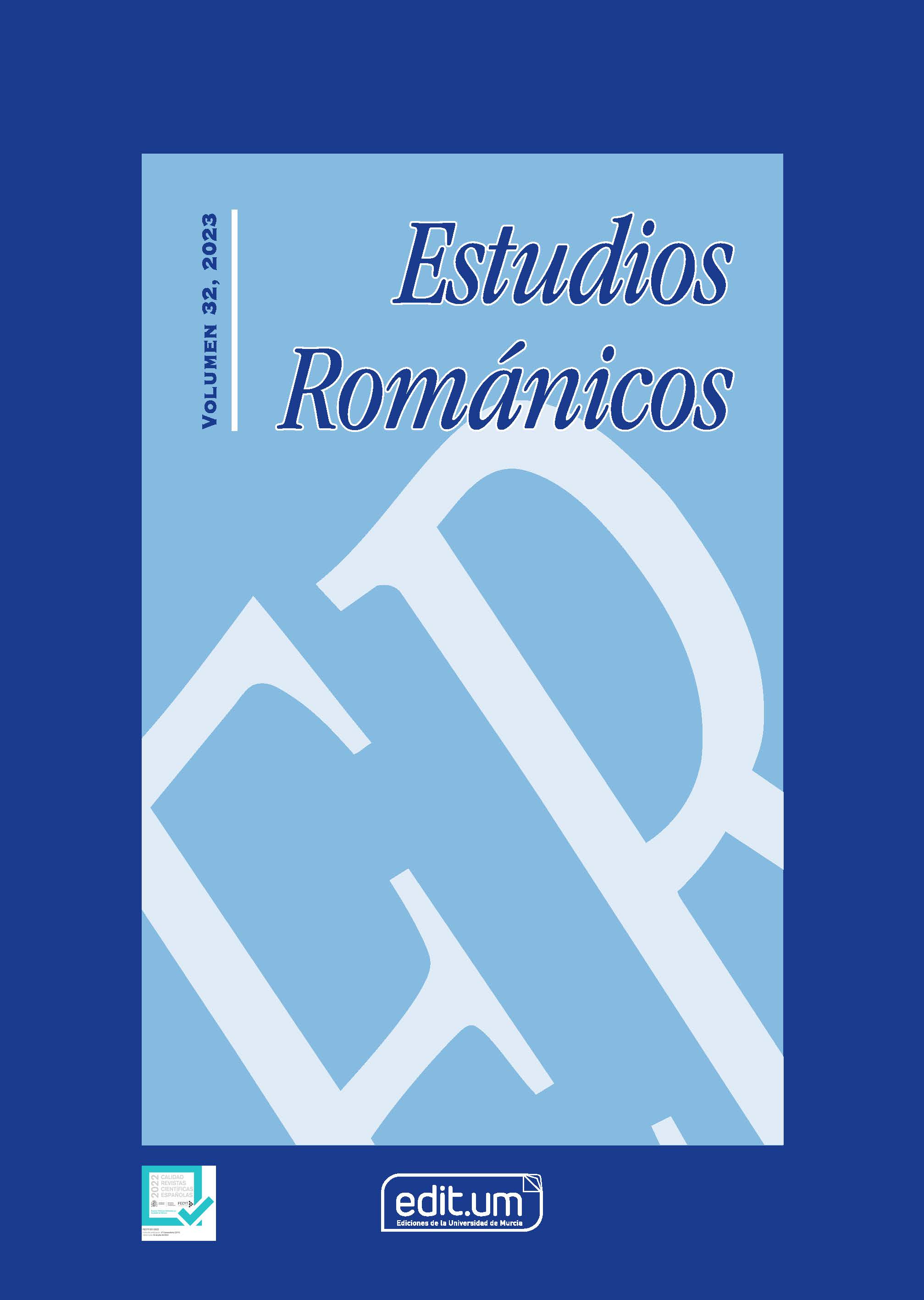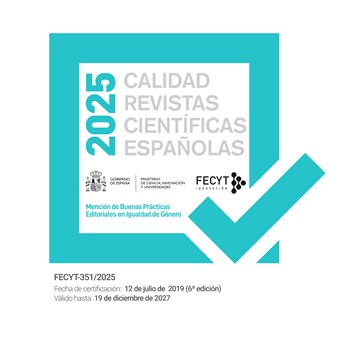Translingual Writing in the Colombian Caribbean: Los Cristales de la Sal (2019) by Cristina Bendek
Abstract
This article examines Los cristales de la sal (2019), the first novel by the Colombian author Cristina Bendek, and its relation within the Colombian national literary canon. Through the analysis of its translingual and transnational narrative strategies, this article identifies a trans-Caribbean poetics in Los cristales de la sal that redefines the contours of Colombian literature and creates intertextual ties and relations with Caribbean literatures. The article concludes with a dicussion of the ecological as well as the literary function of the translingual and transnational strategies at play, and the stakes of the novel’s trans-Caribbean poetics for the natural, literary and human ecologies of the region.
Downloads
-
Abstract499
-
pdf (Español (España))689
References
AVERIS, Kate (2019): “Nancy Huston’s Translingual Literary Universe”, L’Esprit créateur, 59.4, 109-23.
BENDEK, Cristina (2019): Los cristales de la sal. Bogotá: Laguna Libros.
BUITRAGO, Fanny (1979): Los pañamanes. Barcelona: Plaza & Janes.
DANTICAT, Edwige (1996): Krik? Krak! New York: Soho Press.
DE LA HOZ, Valeshka (2022): “Hety, del dúo isleño Hety and Zambo, fue asesinado en San Andrés”, El Heraldo, 15 de marzo.
FLORES-RODRIGUEZ, Daynalí (2011): ‘Towards a Trans-Caribbean Poetics: A New Aesthetics of Power and Resistance’. Tesis doctoral: University of Illinois at Urbana-Champaign.
HENKE, Holger y MAGISTER, Karl-Heinz (2008): Constructing Vernacular Culture in the Trans- Caribbean. Lanham, MD: Lexington Books.
IDARTES (2022): “Abierta invitación al Premio Nacional de Narrativa Elisa Mújica”, Instituto Distrital de las Artes. [https://www.idartes.gov.co/es/noticias/abierta-invitacion-al-premio-nacional-de-narrativa-elisa-mujica]
IPCC (2022): “Climate Change 2022: Impacts, Adaptation and Vulnerability”, Working Group II Contribution to the IPCC Sixth Assessment Report, International Panel on Climate Change. [https://www.ipcc.ch/report/sixth-assessment-report-working-group-ii/]
JAY, Paul (2021): Transnational Literature: The Basics. London and New York: Routledge.
KELLMAN, Steven G. (2000): The Translingual Imagination. Lincoln: University of Nebraska Press.
LAMPEDUSA, Guiseppe Tomasi di (1958): Il Gattopardo. Roma: Feltrinelli.
MAXIMIN, Daniel (2006): Les Fruits du cyclone: une géopoétique de la Caraïbe. Paris: Seuil.
MOREJON, Nancy (2002): “Toward a Poetics of the Caribbean”, World Literature Today, 76.3, 52-3.
ONIC (2015): “65 Lenguas de las 69 [sic] en Colombia son Indígenas”, Organización Nacional Indígena de Colombia. [https://www.onic.org.co/noticias/636-65-lenguas-nativas-de-las-69-en-colombia-son-indigenas]
PIAMBA TULCAN, Diva Marcela (2016): ‘De isleños a sanandresanos: la construcción de identidades en San Andrés Isla vista desde la novelas No Give Up, Man! de Hazel Robinson Abrahams y Los pañamanes de Fanny Buitrago’. Tesis de magister: Universidad Nacional de Colombia.
PINERA, Virgilio (2002 [1942]): “La isla en peso” en La isla en peso. Barcelona: Tusquets.
ROBINSON Abrahams, Hazel (1960): “¿Dónde es que queda San Andrés? en una esquina y un cuadrito del mapa”. El Espectador, 22 de mayo.
ROBINSON ABRAHAMS, Hazel (2010 [2002]): No Give Up, Maan! ¡No te rindas! Bogotá: Ministerio de Cultura, Biblioteca de Literatura Afrocolombia.
ROBINSON ABRAHAMS, Hazel (2013): Textos escogido. Bogotá: Banco de la República.
VESGA, Santiago (2021): “Podcast: Cristina Bendek, Los cristales de la sal”. Editorial Aurora Boreal, 5 de noviembre. [https://www.auroraboreal.net/podcast/3214-podcast-cristina-bendek]
YILDIZ, Yasemin (2012): Beyond the Mother Tongue: the Post-Monolingual Condition. New York: Fordham University Press.
Copyright (c) 2023 Estudios Románicos

This work is licensed under a Creative Commons Attribution-NonCommercial-ShareAlike 4.0 International License.
Las obras que se publican en esta revista están sujetas a los siguientes términos:
1. El Servicio de Publicaciones de la Universidad de Murcia (la editorial) conserva los derechos patrimoniales (copyright) de las obras publicadas, y favorece y permite la reutilización de las mismas bajo la licencia de uso indicada en el punto 2.
2. Las obras se publican en la edición electrónica de la revista bajo una licencia Creative Commons Reconocimiento-NoComercial-SinObraDerivada 3.0 España (texto legal). Se pueden copiar, usar, difundir, transmitir y exponer públicamente, siempre que: i) se cite la autoría y la fuente original de su publicación (revista, editorial y URL de la obra); ii) no se usen para fines comerciales; iii) se mencione la existencia y especificaciones de esta licencia de uso.
3. Condiciones de auto-archivo. Se permite y se anima a los autores a difundir electrónicamente las versiones pre-print (versión antes de ser evaluada) y/o post-print (versión evaluada y aceptada para su publicación) de sus obras antes de su publicación, ya que favorece su circulación y difusión más temprana y con ello un posible aumento en su citación y alcance entre la comunidad académica. Color RoMEO: verde.













